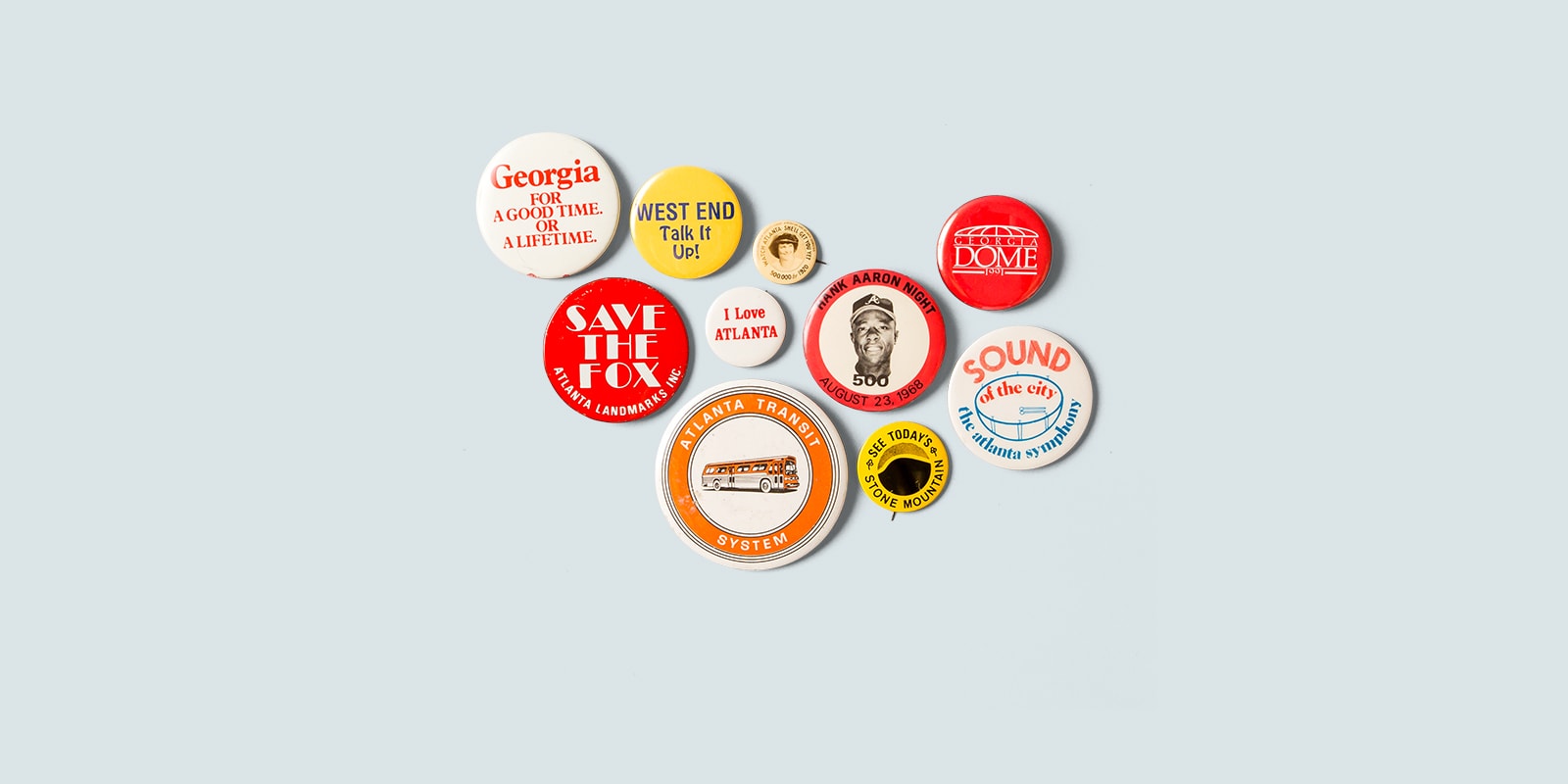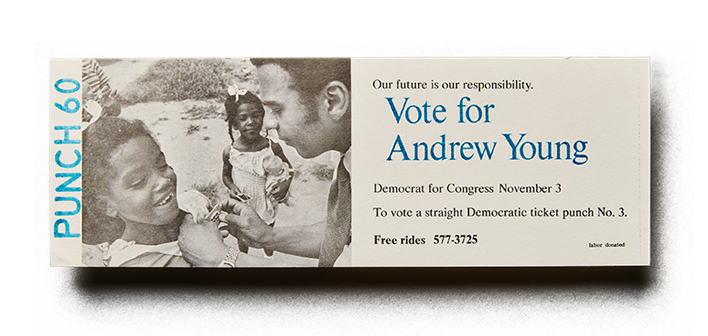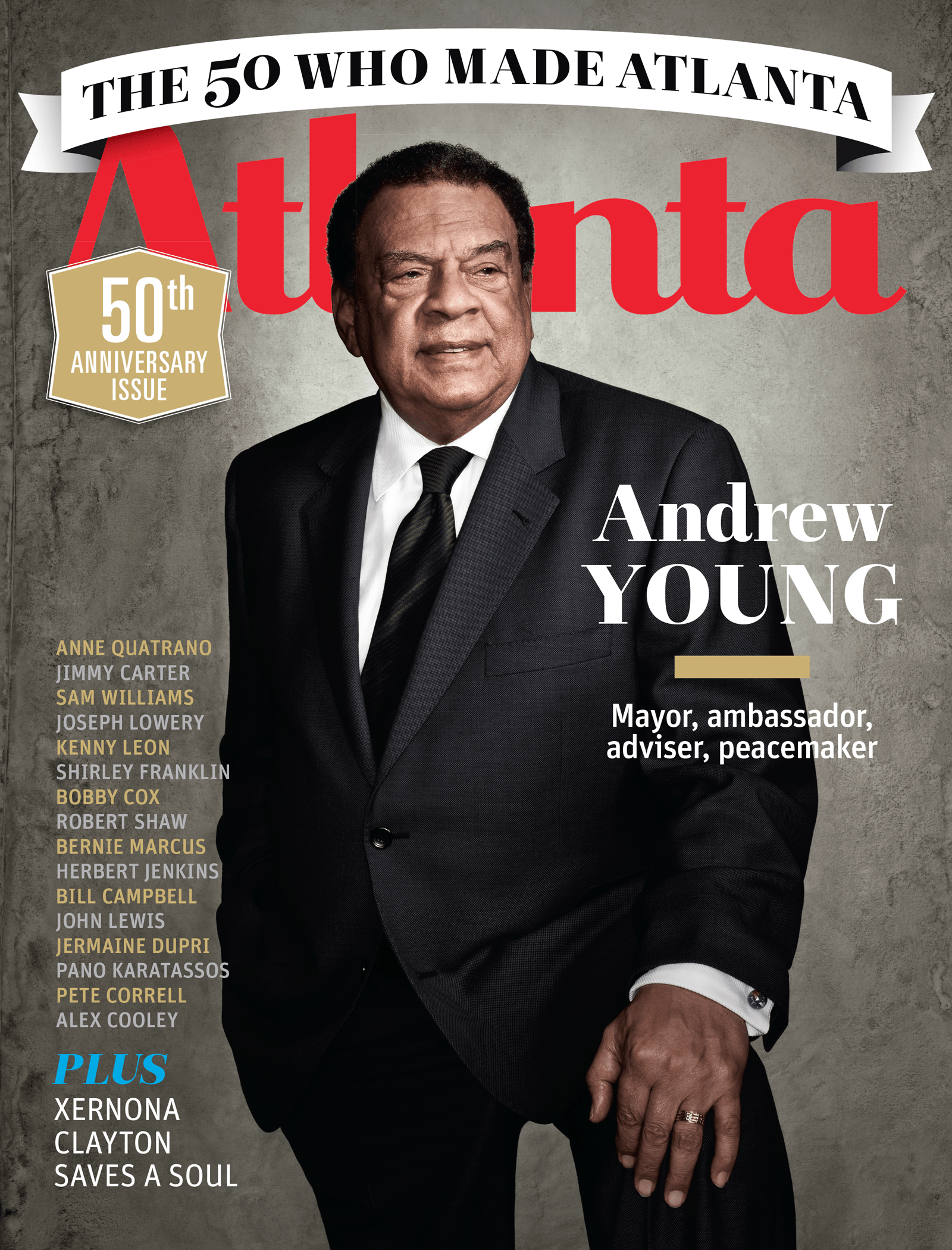Atlanta in 50 Objects
A pink pig and a renegade cow. A movie prop and a Coke bottle. A Pulitzer Prize–winning book and a Nobel Prize–winning icon.
How do you tell the story of Atlanta in 50 objects? We decided the best experts were Atlantans themselves—residents who cheer the Braves and rue I–285 rush-hour traffic, who understand how Civil War losses and Civil Rights victories together helped forge the city’s unique identity. Atlanta History Center asked the public to submit what objects they think best represent their town. The parameters were broad: an object could also be a person, a place, an institution, or an idea. After receiving hundreds of submissions, History Center staff assembled a collection of fifty pieces that represent the themes identified by the public. In addition to items from our own collections, we have partnered with many local institutions and individuals to gather artifacts from around the city to tell this community–driven story.


Andrew Young
Andrew Young came to Atlanta in 1961 to work with the Southern Christian Leadership Conference (SCLC) after serving as a pastor in Thomasville and leading voter registration drives.
Young became a trusted aide to SCLC President Martin Luther King Jr., eventually serving as executive director of the prominent civil rights organization.
While in that position, Young helped draft the Civil Rights Act of 1964 and the Voting Rights Act of 1965. Young won election in 1972 to the U.S. House of Representatives from Georgia’s Fifth District as the first African American from Georgia elected to Congress since Reconstruction. Young was twice reelected and in 1977 President Jimmy Carter appointed him ambassador to the United Nations.
In 1981, Andrew Young won election as Atlanta’s mayor, serving two terms through 1989. In 1987, he joined local businessman Billy Payne to develop a bid for the 1996 Summer Olympics. As co-chair of the Atlanta Committee for the Olympic Games, he was instrumental in promoting Atlanta as an international city. Today, this civil rights icon and recipient of the Presidential Medal of Freedom advocates for human rights and economic development of poverty-stricken areas around the world.

Andrew Young, Atlanta Magazine, 2011. Kenan Research Center at Atlanta History Center